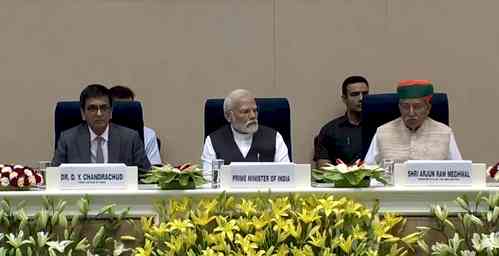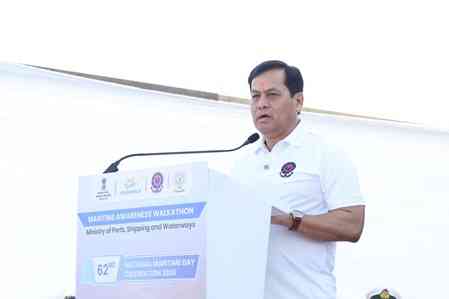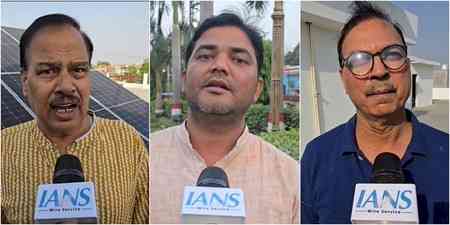Judiciary, legal fraternity have been long protectors of India's justice system: PM Modi
Prime Minister Narendra Modi on Saturday said the legal fraternity plays a key role in the building of any country, adding that the judiciary and bar have long been protectors of India's justice system.

New Delhi, Sep 23 (IANS) Prime Minister Narendra Modi on Saturday said the legal fraternity plays a key role in the building of any country, adding that the judiciary and bar have long been protectors of India's justice system.
He was inaugurating the 'International Lawyers Conference' here.
The Women’s Reservation Bill that was passed in Parliament two days ago will give women-led development a new direction, energy.
Addressing the conference here, Modi said, 'The International Lawyers' Conference 2023 has become a symbol of the spirit of 'Vasudhaiva Kutumbakam’.
He welcomed the foreign dignitaries to India and also thanked the Bar Association of India for taking the lead in organising the programme.
Emphasising the role of the legal fraternity in the development of any country, Modi said, "For years, the judiciary and the bar have been the guardians of India's judicial system."
He also highlighted the role of legal professionals in the freedom struggle and cited examples of Mahatma Gandhi, Baba Saheb Ambedkar, Babu Rajendra Prasad, Pandit Jawaharlal Nehru, Sardar Vallabhbhai Patel, Lokmanya Tilak and Veer Savarkar.
"Experience of the legal profession has worked to strengthen the foundation of independent India and today’s impartial judicial system has also helped in bolstering the confidence of the world in India," he said.
The Prime Minister underlined that the conference is taking place at a time when the nation has been a witness to several historic decisions and recalled the passage of Nari Shakti Vandan Adhiniyam in the Lok Sabha and Rajya Sabha which entitles a 33 per cent reservation for women in the Lok Sabha and Vidhan Sabha.
He also mentioned that the world got a glimpse of India’s democracy, demography and diplomacy at the recently concluded G20 Summit in New Delhi.
"On this day, a month ago, India became the first nation in the world to successfully land Chandrayaan-3 on the south pole of the moon," the Prime Minister recalled.
He emphasised that the India of today which is brimming with self-confidence is working to realise the goal of a 'Viksit Bharat' by 2047 and expressed the need for strong, independent and unbiased foundations for the legal system in India to achieve the goal of a developed nation.
He expressed confidence that the International Lawyers’ Conference 2023 will turn out to be extremely successful and each country will get an opportunity to learn from the best practices of other nations.
Modi elaborated on the deep connectedness of today’s world.
He said that there are many forces in the world today that do not care about the borders and jurisdiction.
"When dangers are global, ways to deal with them should also be global", he said. He touched upon cyber terrorism, money laundering, and possibilities of misuse of artificial intelligence and said that preparing a global framework on such issues goes beyond just government matters but calls for connectedness among the legal framework of different countries,” the Prime Minister said.
Speaking on Alternate Dispute Resolution, the Prime Minister said that with the increasing complexity of commercial transactions, ADR has gained currency all over the world.
He said that in order to systematise the informal tradition of dispute resolution in India, the Government of India has enacted a mediation Act.
Similarly, Lok Adalats are also playing a big role and Lok Adalats have solved about 7 lakh cases in the last six years.
The Prime Minister mentioned the simplicity of language and law and said that ongoing discussion regarding presenting any law in two languages - one to which the legal system is accustomed and another for common citizens.
"Citizens should feel that the law belongs to them," Modi stressed as he underlined that the government is making an effort to draft new laws in simple language and gave the example of the Data Protection Law.
He also congratulated the Supreme Court for making arrangements to get its judgments translated into four local languages -- Hindi, Tamil, Gujarati and Oriya and hailed the monumental change in the judicial system of India.


 IANS
IANS 








